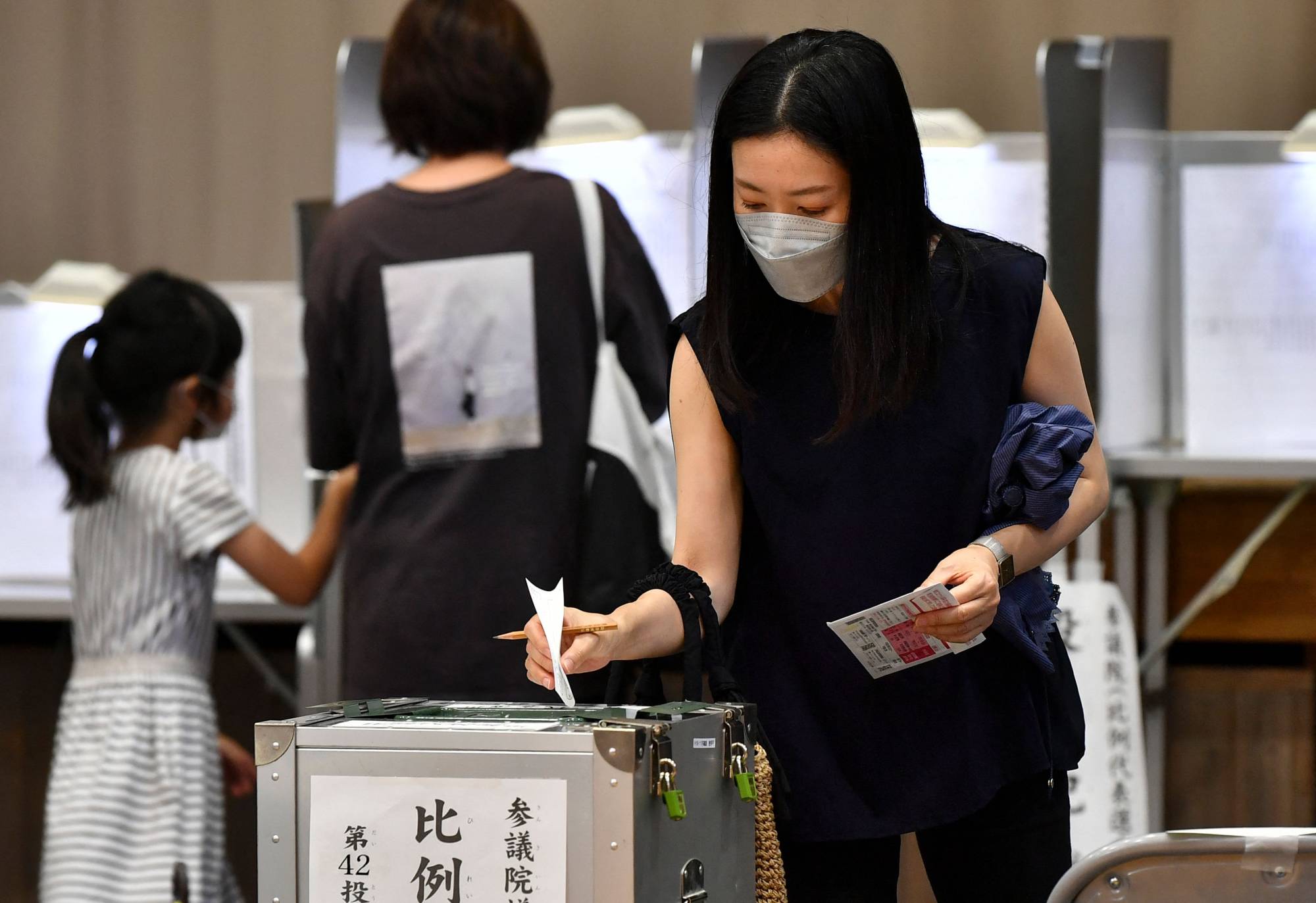The murder of former Prime Minister Shinzo Abe just days before the Upper House election sent shockwaves through the nation. Yet voter turnout increased only marginally and Japanese youth remained largely disengaged.
With just 34% of 18- and 19-year-olds heading to the ballot box, youth turnout relative to the overall figure was the lowest since the voting age was dropped from 20 to 18 six years ago. That’s despite an ongoing civic education campaign aimed at rallying younger Japanese, who trail counterparts in the U.S. and South Korea in political engagement.
With the world’s oldest population, Japan is facing a "silver democracy” crisis in which the younger generation feels underrepresented in politics, despite shouldering an ever-increasing burden to support the nonworking population. The low youth turnout was a far cry from the 64% of Japanese in their 60s who hit the booths in 2019. Data for that age group in the Upper House election is not available.


















With your current subscription plan you can comment on stories. However, before writing your first comment, please create a display name in the Profile section of your subscriber account page.